Do you have what you need to make your garden grow?


Garden Center
Store Hours
Mon-Sat:
6:00am - 10:00pm
Sun:
7:00am - 8:00pm
Location
Popular at Your Garden Center
Summer Garden Center Supplies
Popular Garden Center Live Plants
Garden Project Calculators
;Resize=(703,395.44))
Grass Seed Calculator
When you're ready to seed your lawn, our calculator helps you estimate the amount of grass seed you'll need to get the job done.
;Resize=(703,395.44))
Mulch Calculator
Enter your preferred material, the square footage and mulch depth of the coverage space for accurate results.
;Resize=(703,395.44))
Fencing Calculator
We'll calculate the amount of fencing you should purchase based on your property needs.
Shop Outdoor and Garden Brands
Frequently Asked Questions About Gardening
What should I do about weeds in my garden?
Weeds are likely poking through in the garden beds, even if you put down a landscape liner fabric or mulch to keep them at bay. Be sure to get them before they go to seed. Pull out weeds from the root in vegetable or edible flower gardens, and dig up the roots if the weed snapped off at ground level. If you choose to treat weeds with weed killer, find one that's safe for pollinators and pets — and wear thick rubber gloves and a respirator to ensure that it doesn't touch your skin or your lungs.
Is it possible to fix scorched grass?
The solution for how to get burnt grass green again is easy: Fix the scorched spot with a lengthy drink. Continue to water it regularly. It should perk up within a week. On the other hand, the game plan for how to treat grass from dog urine isn't as straightforward. Grass damaged by pets must be removed, neutralized, and replanted in fresh soil with new grass or patch and repair grass seed.
When should I water my flowers?
If you can water during the evening or in the early morning, that's ideal. Watering during the heat of the day means a lot of the moisture will evaporate. This applies to whatever you've got growing: trees, gardens, and lawns. Whenever you water, give all the plants a thorough drink, and don't skip it just because it's not the perfect time. The plants still need water to live, regardless of the time on the clock. Depending on your grass type, climate, and lawn health, you may also want to look into applying a lawn fertilizer.
How often should I apply fertilizer?
Once you've gotten your plants into the soil, you'll need to make sure they stay hydrated and well-fed. Choose an organic or synthetic fertilizer that suits your needs and gives your garden a boost. You can even find one that's formulated for your plants, whether you need a vegetable fertilizer, fruit tree fertilizer, succulent plant food, or a general garden fertilizer. Only apply as often as recommended on the packaging. Remember to always water immediately after, as directed. That way, the plants won't be burned by the fertilizer.
How can I keep cool this summer?
When you need a break from the heat, shelter beneath a covered gazebo or patio umbrella. If you have sturdy structures like a house or a shed, make your own shade by attaching shade sails and awnings. However, sometimes shade isn't enough because it's just too humid out. That's when a misting fan or patio mister can help cool the air and turn an uncomfortable afternoon into a refreshingly relaxing day. Return to lounging in the sun when that water-chilled air is ready.
What do I need for backyard entertaining?
Backyard entertaining doesn't have to be a barbecue party. If you're planning on firing up the grill, make sure you know how to clean a grill when you're done. Many people simply relax outdoors or cook a meal together in an outdoor kitchen. Whichever path you take for bonding with friends, extend the fun into the evening with proper outdoor lighting and a bug-free yard without pesky mosquitos.
Garden Project Ideas

Protect wood from carpenter bees with our guide on sealing surfaces, using traps, and applying safe pest control methods.

Check out our tips on banishing gnats indoors and out using traps, sprays, and moisture control to keep your home pest-free.

Safely remove poison ivy with our guide on protective gear, cutting techniques, and herbicide use for effective eradication.

Maintain a healthy lawn using organic methods like manual weeding, natural herbicides, and proper lawn care practices.

Grow apples successfully with our guide on choosing varieties, planting, pruning, and pest control for a bountiful harvest.

Cultivate thriving grapes with our step-by-step tips on site selection, trellising, pruning, and disease prevention.
The Home Depot Garden Center at Bronx Terminal
Celebrate Summertime Gardening
As we stretch into the dog days of summer, your garden and landscaping will weather more sun and heat than earlier in the year. That means you'll need to consider how to keep things cool. You might also need ways to beat the heat. We can help. At The Home Depot Bronx Terminal Garden Center, we've got what you need to make the most of summer.
Keep Your Lawn Tidy
As the weeks tick by, the grass seed or sod you planted will grow taller than what's ideal. You'll need to maintain it so it'll look manicured and fresh again. Keep the lawn in check with a self-propelled lawn mower and a string trimmer to knock down any tall grass around sidewalks, buildings, or fences.
Bushes, shrubs, and trees climb toward the sun and lose their shape over time. They're growing fast, filled with buds and blooms before you know it. Trim wild branches to the size and shape you want with garden shears and hedge trimmers. It's best to leave major tree maintenance and tree topping to the pros, but you may want to use a pole saw for minor trims and a chainsaw for small bushes and trees.
Watch Your Garden Thrive
Make sure to water your garden. That's the way to keep it going between rainstorms to enjoy the summer flowering. A general rule when watering plants and flowers is to aim the water at the roots. A garden hose, sprinkler or sprinkler system, or drip irrigation system will work well. You don't need to water the blooms themselves. Many flowers droop and wilt when they get wet, but they'll recover just fine once they dry off. Succulents are the exception to basic watering rules, so look up your specific types of succulents to optimize their care.
In addition to watering, keep an eye on your plants' nutrient intake. Apply fertilizer as recommended. We've even got fertilizers to match the plants you're growing so they'll get the right nutrients.
Vertical Edible Gardening
Grow produce vertically for a smart use of space. Many vegetable plants are vines and well-suited to climb a fence or trellis, so plant them next to one. The key to success is supporting the stem, fruit, and branches. This is so the weight of the plant doesn't snap the those parts of the plants. Fasten the plant to a fence, trellis, or pole with plant ties and wires, string, garden wire, or fabric strips. Be sure to attach each plant loosely. That way, the stem has room to grow wider and the branches and leaves can sway in the breeze.
Strawberries, watermelon, squash, cucumbers, and tomatoes need support as they bear fruit. Melons and squash require hammocks made of old nylons, string, a sling, or other stretchy fabric to support the weighty produce. All of these plants take up less space on the ground this way, which allows you to fit even more plants or have walking room in between.
Vines as Decorative Shade
Plant vines near a trellis or an arched arbor so they'll climb it and give you both beauty and shade. Go with vine plants that are native to your area. They're a good choice for success and attract pollinators. Jasmine, wisteria, and ivy are common options for creating a stunning pathway or archway. Remember to match your vine plants to the amount of sunlight you receive, as some like full sun and others don't. As a bonus, many vines put out sweet-smelling flowers, so you can enjoy a delightful fragrance as you cool off in the shade.
Find Your Summertime Supplies Today
No matter if your perfect summer includes grilling, gardening, or completing those outdoor DIY projects, we've got the supplies to keep your days flowing with ease. Make the most of these long evenings and early mornings to enjoy all the season has to offer. Shop online, on our app anywhere you like, or in the aisles of your Bronx Terminal Garden Center.
Nearby Stores
Find Another Store
73-01 25th Avenue
East Elmhurst, NY 11370
4.59 mi
Mon-Sat: 6:00am - 10:00pm
Sun: 7:00am - 8:00pm
410 East 61st Street
New York, NY 10065
4.67 mi
Mon-Sat: 7:00am - 9:00pm
Sun: 8:00am - 8:00pm
2560 Bruckner Blvd
Bronx, NY 10465
4.73 mi
Mon-Sat: 6:00am - 10:00pm
Sun: 8:00am - 8:00pm
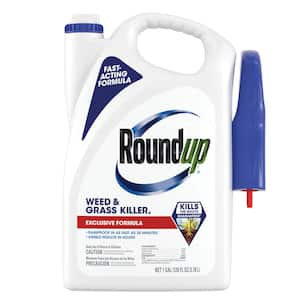
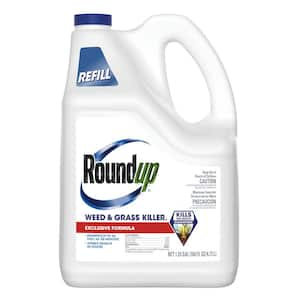
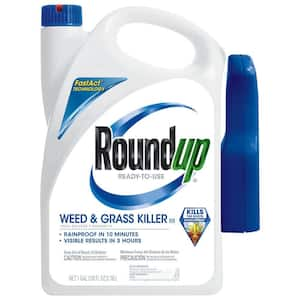
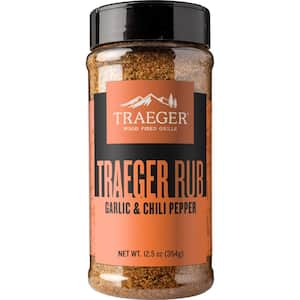
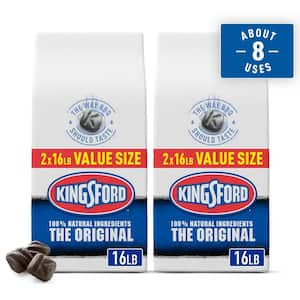
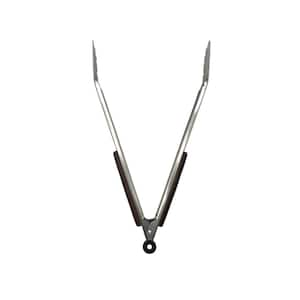
)
)
;Resize=(300,300))
/17_514245_S_012_Product%20Image%20(square).jpg?im=Resize=(300,300))
)
/2023_P2_Rain_Barrels_Product%20Image%20(square).jpg?im=Resize=(300,300))
;Resize=(300,300))
;Resize=(300,300))
)
)
;Resize=(300,300))
)
)
)
)
;Resize=(300,300))
;Resize=(300,300))
)
)
)
;Resize=(300,300))
;Resize=(300,300))
)
;Resize=(300,300))
;Resize=(300,300))
)
/12_SOIL_B_0420_Social%20media%20(square).jpg?im=Resize=(300,300))
;Resize=(300,300))
;Resize=(300,300))
;Resize=(300,300))
)
;Resize=(300,300))
)
;Resize=(300,300))
;Resize=(300,300))
/18Patio_Camden_Seagrass_5pcSeating_Planters_302468736_DTL3_L_Social%20media%20(square).jpg?im=Resize=(300,300))
;Resize=(300,300))
)
;Resize=(300,300))
;Resize=(300,300))
)
)
.jpeg?im=Crop,rect=(363.69230769230774,1.2307692307692308,958.7692307692308,958.7692307692308);Resize=(300,300))
;Resize=(300,300))
)
)
)
;Resize=(300,300))
;Resize=(300,300))
)
;Resize=(300,300))
)
)
;Resize=(300,300))
)
;Resize=(300,300))
)
;Resize=(300,300))
;Resize=(300,300))
)
)
)
;Resize=(300,300))
;Resize=(300,300))
/Dorado_Tropical_Combo_14in_Product%20Image%20(square).jpg?im=Resize=(300,300))
;Resize=(300,300))
/2023_2_Cactus_Plants_Product%20Image%20(square).jpg?im=Resize=(300,300))






































